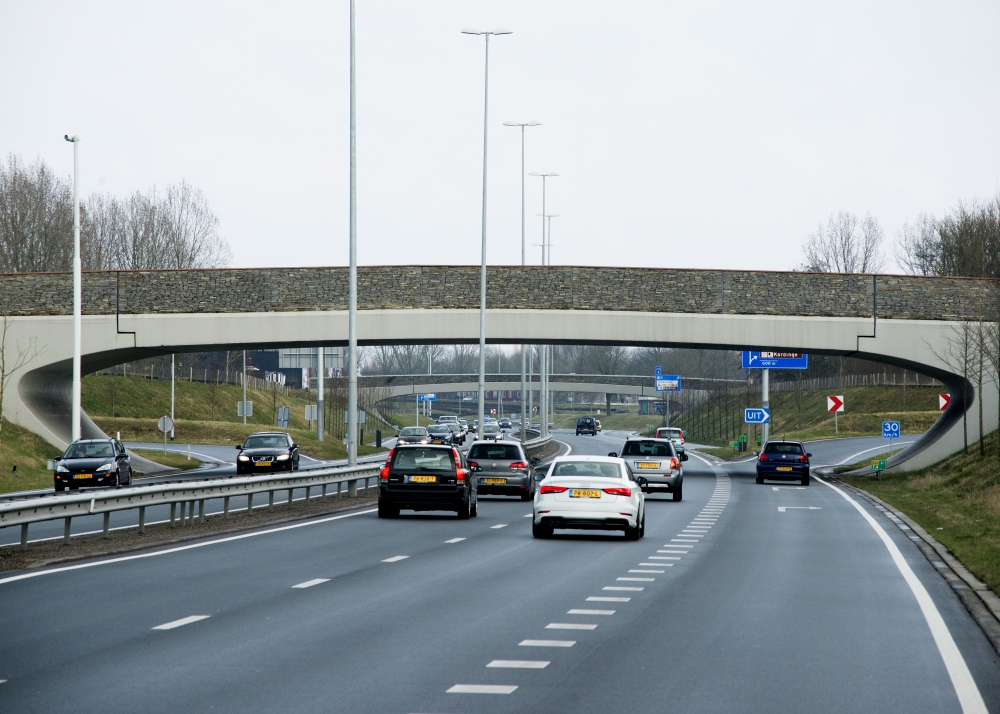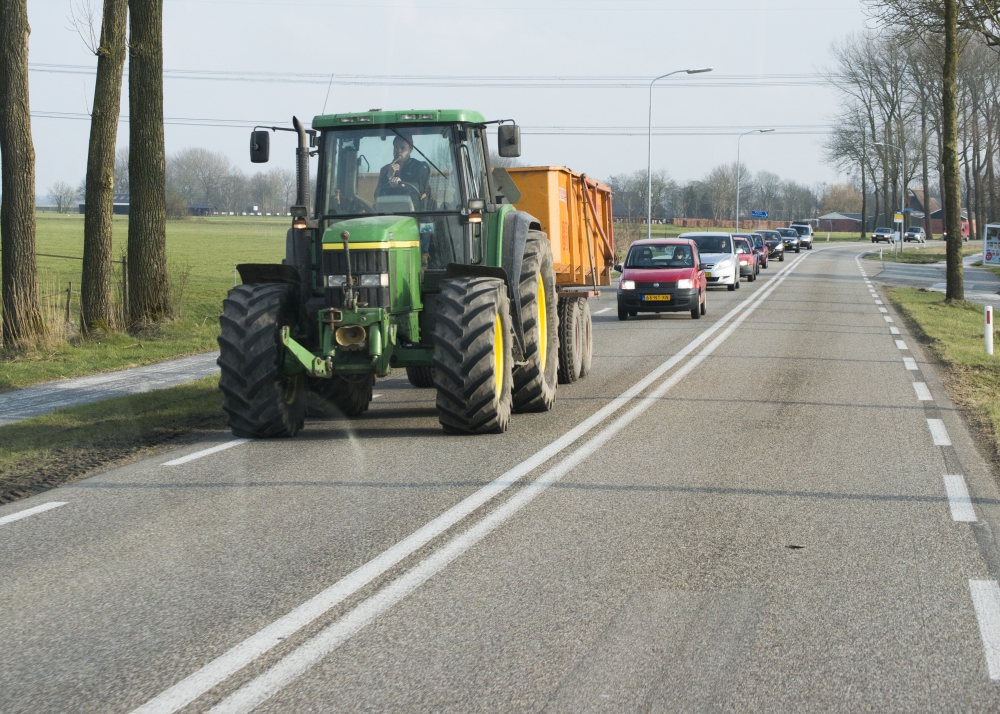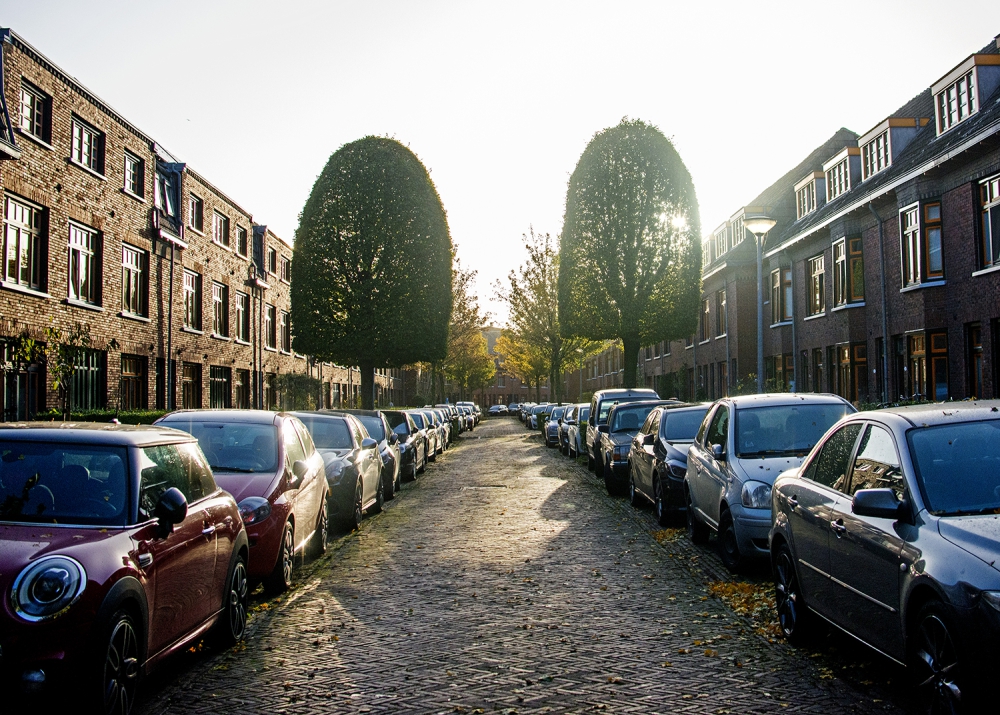Importing a Motor Vehicle
There are several steps you must take to import a motor vehicle or motorcycle that you purchased outside the Netherlands.
- In some cases, you must make a declaration for import duty and/or VAT and pay the amount owed
- If possible, you should request an exemption from BPM (belasting van personenauto’s en motorrijwielen – private motor vehicle and motorcycle tax)
- Your vehicle must pass inspection by the RDW (Dutch Motor Vehicle Authority)
- You must make a declaration for BPM at the Dutch Customs authorities (douane) or the Tax Service (belastingdienst) and pay the amount owed (unless you have received an exemption)
- You should have your car inspected and obtain an AP’ certificate (APK – Algemene Periodieke Keuring, generally known as MOT in English). You can request APK inspection at most mechanic garages in the Netherlands.
Once you have completed the above stages you will receive a registration certificate. You must then:
6. Obtain Dutch license plates produced by an authorized manufacturer.

1. Make a declaration for import duty and/or VAT
If you bought your car or motorcycle in another EU country:
You do not need to declare your car purchase for import duty if your vehicle will have a normal registration (as opposed to a dealer’s registration.)
For VAT purposes, there is a difference between new and used vehicles. VAT is payable on new imported cars and motorcycles, but not on second hand vehicles.
In this context, second hand means from another EU country, more than 6,000 km on the odometer and registered under your name for at least six months.
If you have paid VAT in another EU country on a new car, you still need to pay VAT in the Netherlands. You can claim VAT back from the EU country where you bought the car after registration in the Netherlands. See this link from Europa.eu for details.
If you bought your car or motorcycle outside the EU:
You must declare your purchase to the Dutch Customs authorities when you import it. Customs will charge import duties and VAT. The necessary documents are available from the Dutch Customs website.
2. Apply for an exemption of BPM tax (if applicable)
Most people have to pay BPM, but you can request a permit for an exemption from BPM if you fulfill several conditions. Please note: in most cases, Bachelor’s and Master’s students coming to the Netherlands are not eligible for a BPM exemption.
The conditions are listed below:
If you are moving from another EU country:
- You move from within the EU to the Netherlands and bring your car with you
- Your car is part of your household goods that you imported. To fulfill this requirement, you need to import the car within 12 months from your date of registration with a Dutch municipality in the Netherlands
- You use the car for the same purpose that you used it in your previous country of residence
- The car was in your possession and in use by you for at least 6 months before you moved to the Netherlands
- You lived in your last country of residence prior to moving to the Netherlands for at least 12 months
If you meet these conditions, you can request an exemption. You can download the form to request for exemption from BPM (Aanvraag vergunning vrijstelling BPM bij verhuizing binnen de EU).
Please note: If the Tax Authority grants you this exemption, you are not permitted to sell, lease, or lend the car or motorcycle within one year after registration. Residing family members with a valid driving license may use the car or motorcycle.
If you are moving from a country outside the EU:
- You are moving from outside the EU to the Netherlands and bringing your car with you
- You are importing the car within 12 months after initially arriving for the first time in the Netherlands
- You will use the car for the same purpose that you used it in your previous country of residence
- The car was in your possession and in use by you for at least 6 months before you moved to the Netherlands
- You lived at least 12 consecutive months outside of the EU before moving to the Netherlands
- You will not sell, loan, pawn, or lease your car within 12 months of importing
If you meet these conditions, you can request an exemption. Your moving company or customs representative must help you apply for the exemption with a digital declaration system (AGS) and special exemption code.
Required documents:
The Belastingdienst/Douane requires multiple documents to substantiate your claim:
- Copy of your passport or ID card
- Copy of your car license registration from the foreign country
- Proof of de-registration from your previous country (if applicable)
- Copy of your proof of purchase of the car (bill of sale and title)
- Proof of address in your former country of residence: copy of rental contract or buying contract
- In case of foreign health insurance, copy of policy
- (If moving to the Netherlands for work) a copy of your Dutch employment contract, or employer’s declaration, or work permit
- If applicable, proof of prior employment in your previous country of residence (copy of employment contract) or, for entrepreneurs, a copy of foreign Chamber of Commerce registration
- If you move to the Netherlands to study: proof of enrollment
You can apply for this exemption within 12 months of your move to the Netherlands. The address where you need to send all the materials is listed on the form.

3. Have your car or motorcycle approved for import by the RDW
a. Once you have received your BPM exemption, you must have your vehicle inspected and approved by the RDW.
Most vehicles brought from outside the EU/EFTA are not built according to a Dutch or European standards. Specialty equipment required for the inspection is only available at the RDW test center in Lelystad. However, some exceptions apply; please read the section below.
Inspection at other RDW locations
In the following situations, you can have your vehicle inspected at RDW test stations across the country:
- If you enter the vehicle as part of your household goods.
- If the vehicle has had a Dutch license plate in the past.
- If the vehicle has an European-type approval. You can request this from the manufacturer or importer of the vehicle brand.
- If any of the above conditions apply, your vehicle can (and must) be inspected at an RDW inspection station.
- If your car as part of your household goods, before the RDW appointment, you need to make an appointment with the municipality to request an extract from the population register (Uittreksel BRP), which lists your name, address, BSN and the fact that you moved here from abroad. As of 2023, this will cost you €19.
Please note: extracts older than 3 months are not accepted by the RDW!
You can make an appointment via the RDW website.
To make the appointment at the RDW, you need the following information about your car:
- Manufacturer
- Model
- Year
- Color
- Type of fuel
- Number of doors
- Number of cylinders
- Standard or automatic
- VIN or chassis number
- Approximate weight

There are two RDW inspection stations in the north:
Groningen
Duinkerkenstraat 25, 9723 BP Groningen
Heerenveen
Jupiter 12, 8448 CD Heerenveen
You can find a complete list of RDW inspection stations in the Netherlands at the RDW website.
The RDW will send confirmation and the paperwork by email after making the appointment.
b. Your vehicle can be transported to the inspection station (e.g. by trailer or pick-up) or you can also drive it there yourself if you obtain a one-day license plate registration for the purposes of weighing and investigation by the RDW. This can be obtained when you make your appointment for the inspection.
About one-day license plate registration:
The RDW’s confirmation email will include an attachment with your temporary license plate number. This number must be written on a piece of cardboard and attached either with a rubber band to your license plate holder or taped to the back and front interior windows. You can only use it on the day of your appointment.
Please note: you will also need to arrange car insurance once you have a temporary license plate number. Insurance may be cheaper if you can get a statement from your previous insurance company about your driving behavior (i.e. a ‘no claims’ declaration that lists how many years you have driven without being in an accident).
c. You must bring the following to the inspection:
- Your car or motorcycle
- A valid driver’s license
- Your passport
- A recent extract from the population register from the municipality
- Original foreign car registration certificate
- The permit for exemption from BPM
- Proof of a recent inspection abroad, if applicable
d. Once the inspection is completed and the vehicle has been approved, the RDW will digitally send the technical information of your vehicle to the Tax Authority (Belastingdienst).
If you car is not approved, get the necessary repairs done and then make another appointment with the RDW.
4. Make a declaration for BPM
Even if you have received an exemption for paying BPM, you still must file a BPM statement about the car using this form.
An easier way to complete the declaration form is to use the Autotelex website. Click the green start button to begin the programme.
Completing both forms – declaration itself and the calculation – via this website costs €32.50. You must pay up front in order to continue with the process. Autotelex accepts iDeal (online payment system with you Dutch bank card), Visa and Mastercard.
Once the form has been completed, you can download and print the form. Send your completed declaration with the requested attachments in a stamped (gefrankeerd) envelope to:
Belastingdienst
PO Box 2710
6401 DE Heerlen
The order in which you submit your declaration determines the decision time. You can shorten the lead time by providing your data in one package in this order:
- Form ‘Aangifte/Melding/Opgaaf BPM’
- Attachments to the BPM declaration form
- Other appendices such as invoice, price list, CVO, etc.
- Valuation report
5. Arrange car inspection (APK)
You can schedule a combined import-APK inspection if you like.
While the APK inspection is mandatory, it is not a prerequisite for obtaining your Dutch license plate registration: only the import inspection is required.
You could schedule the APK inspection separately after you have received your Dutch license plate registration. Once you get your registration letters, you could combine the APK with the appointment to have your license plate made.
General information about APK
The “Algemene Periodieke Keuring” (APK) is a compulsory inspection for all vehicles under 3,500 kg. If your vehicle is three years or older, it must be inspected annually. Vehicles over 3,500 kg and all taxis must be inspected annually once they are one year old.
The inspection looks at various aspects of safety and environmental protection. In the Netherlands, APK inspection may only be conducted by RDW-certified locations. All vehicles, both those which pass the inspection and those which do not, are given an inspection report. There is no set price for an APK inspection.
The date of the so-called ‘first approval’ decides when your vehicle becomes liable for inspection. This date can be found on Part I of the registration certificate and is usually the date on which the certificate was issued.
Your vehicle must have its first inspection three years after this date. You may have the vehicle inspected up to two months prior to this date; this does not affect the date by which the vehicle must in future be inspected.
For example: your vehicle must be inspected on or before 14 April. You may therefore have the inspection carried out any time between 15 February and 14 April. 14 April remains the final date for inspection. Do not therefore put off the inspection too long.
If you have a complaint about the inspection (for example, you later find a rusted strut which was rusted at the time of the inspection), or if you disagree with the result, you may lodge an appeal.
For your safety and for that of other road users, as well as for the environment, it is important that your vehicle is in good technical condition. Regular servicing will help to ensure that it remains in good technical condition.
The APK inspection is just one moment in time – passing the inspection does not mean that your car will remain safe and clean for the rest of the year and does not mean that you do not need to carry out any maintenance during that year!
6. Obtain Dutch license plate registration and have plates made
If the car has passed the import inspection and the Tax Service has received, processed and approved the BPM declaration, then the RDW will send you your registration papers by mail within 5 working days.
Please note: the Tax Service officially needs to process and decide on your BPM declaration within 8 weeks.
The registration papers include the permanent license plate number. You will receive the following:
- A letter stating your Dutch license plate number (kentekenbewijs)
- One working day later, you will receive a letter with a so-called tenaamstellingscode, a code that belongs to the kentekenbewijs.
If you have arranged for an APK inspection, you will also receive the APK report separately.
Together, the kenkenbewijs and the tenaamstellingscode comprise your registration certificate. More information on this certificate is explained below.
Registration Certificate
Every owner or possessor of a registered vehicle should have a registration certificate. This certificate consists of three parts. If your registration certificate has been lost or damaged you must obtain a replacement from the RDW.
Part I
This part shows the technical specification of the vehicle, such as the make, model and chassis number. The owner/keeper is obliged to keep this part in the vehicle whenever it is use.
Part II
This part shows the personal details (name and address) of the vehicle’s owner/keeper. This part must also be kept in the vehicle whenever it is in use.
Part III: Transfer of ownership certificate
The final part of the registration certificate is effectively ‘proof of ownership’ and is necessary when selling the vehicle. The transfer of the vehicle’s ownership must be registered at the Post Office using this part of the certificate. The transfer document need not be kept with the vehicle: it is probably more sensible to keep it in a safe place at home.
Dutch license plates
You must have your license plates made by an approved manufacturer.
Arrange car insurance or, if you used the temporary license plate number to arrange insurance prior to import inspection, inform your insurance company about the new, permanent, Dutch license plate number.
RDW-approved manufacturers can be found at this link.
On the day of your license plate appointment, you can write your permanent Dutch license plate number on two white cardboard plates using a black pen, and attach them to your car – same as what you may have done with the one-day license plate number. Once this is in place, you can drive your car to the garage.
The plates are then made, attached to the car, and after you pay, you are good to go!
Motor vehicle tax (MRB)
Receiving Dutch plates also means that you will automatically be sent a quarterly bill from the Tax Service for motor vehicle tax (MRB). This is a road tax based on the weight of the motor vehicle, the type of fuel, the province in which you live and the CO2 emissions.
